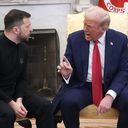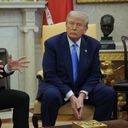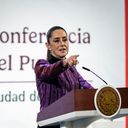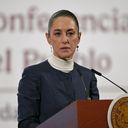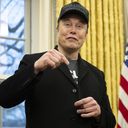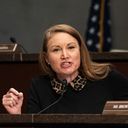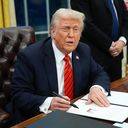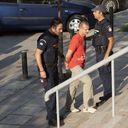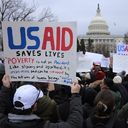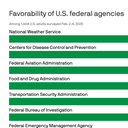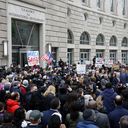Europe's far-right split on Trump's Ukraine squeeze
Europe's far-right leaders are divided over President Trump's approach to ending the Russia-Ukraine war.
Why it matters: Trump's embrace of Russian President Vladimir Putin and coinciding about-face on U.S. assistance to Ukraine has caught even some of his reliable allies on the continent off guard.
What they're saying: French far-right leader Marine Le Pen condemned the "brutality" of the U.S.' decision to halt aid to Ukraine in an interview with Le Figaro published Tuesday.
- Dutch populist leader Geert Wilders — often referred to as the "Dutch Trump" — said Saturday that he and his far-right Freedom Party (PVV) support Ukraine "with conviction," the Brussels Times reported.
- Italy's far-right Prime Minister Giorgia Meloni stressed Sunday the importance of Western unity when it comes to Ukraine and reaffirmed Italy's support for Ukraine.
The other side: Others have endorsed Trump's approach.
- Hungarian Prime Minister Viktor Orbán backed Trump emphatically and praised the economic benefits of bringing Russia back into the Western fold, AP reported.
- Alice Weidel, one of the co-leaders of the far-right, anti-immigrant Alternative for Germany (AfD) party, posted on X about the contentious White House meeting, writing, "Historic. Trump & Vance!"
Catch up quick: Trump and Vice President JD Vance publicly berated Ukrainian President Volodymyr Zelensky in the Oval Office last week, before pausing military aid to, and intelligence sharing with, Ukraine this week.
- The Trump administration has also thrown cold water on prospect of a U.S.-led peacekeeping mission in Ukraine, insisting instead on the need for European peacekeeping forces to secure peace in Ukraine.
- Meanwhile, the U.K. and French governments have pledged to commit troops to such a peacekeeping force.
The big picture: Trump's first month in office has upended America's long-held alliances in Europe and reshaped the post-World War II international order.
Go deeper: What's behind Trump's views on Ukraine and Russia


